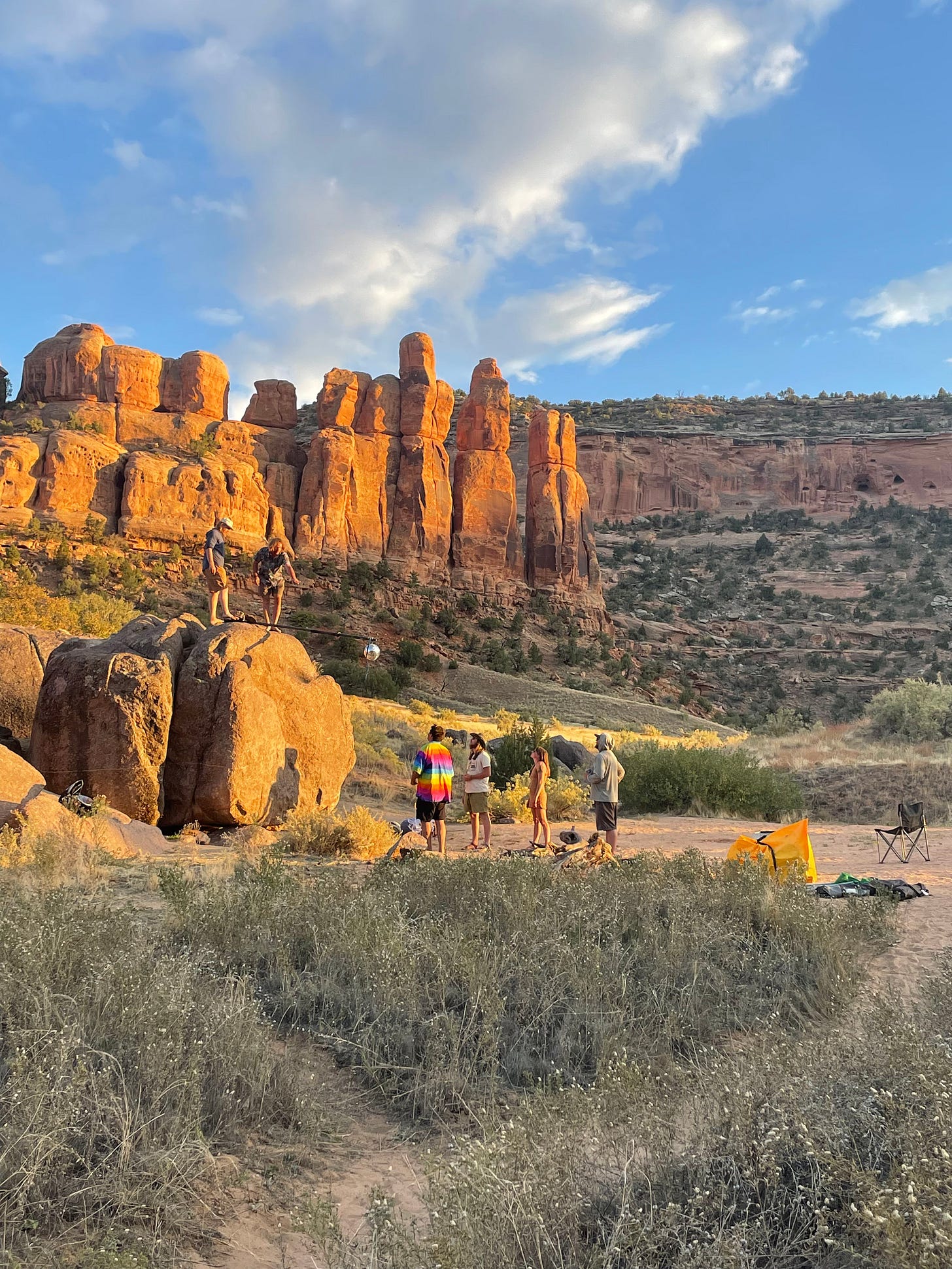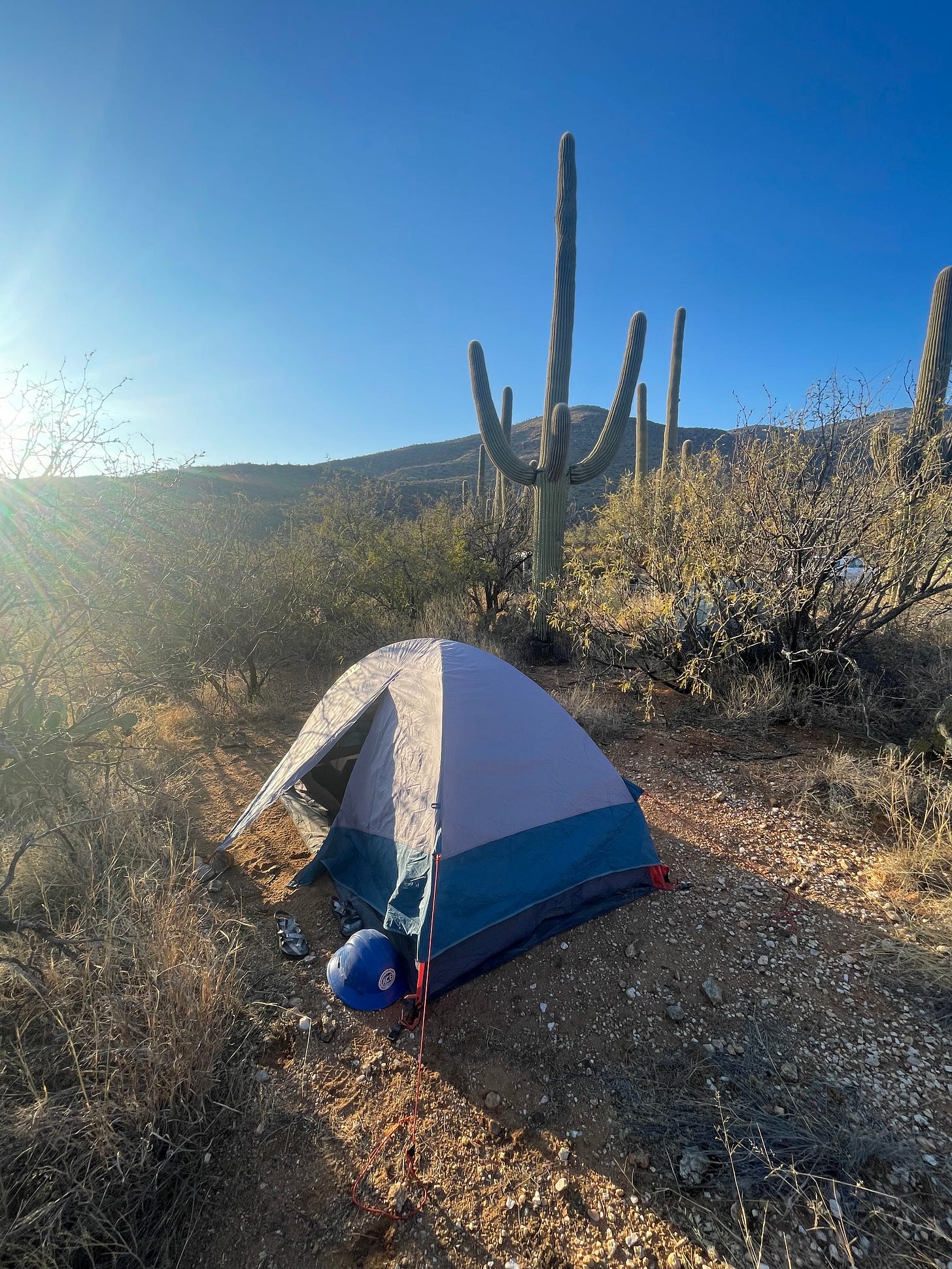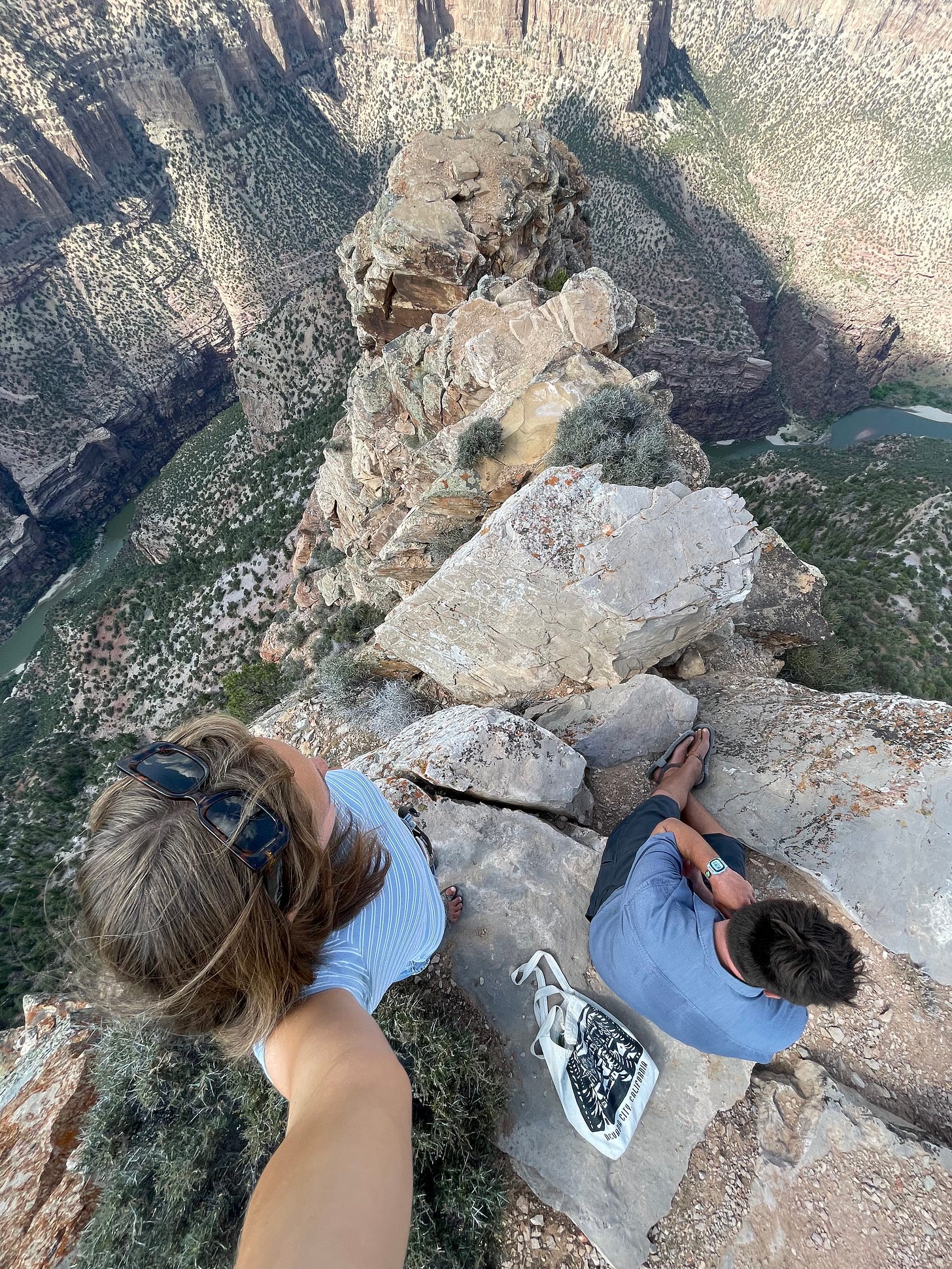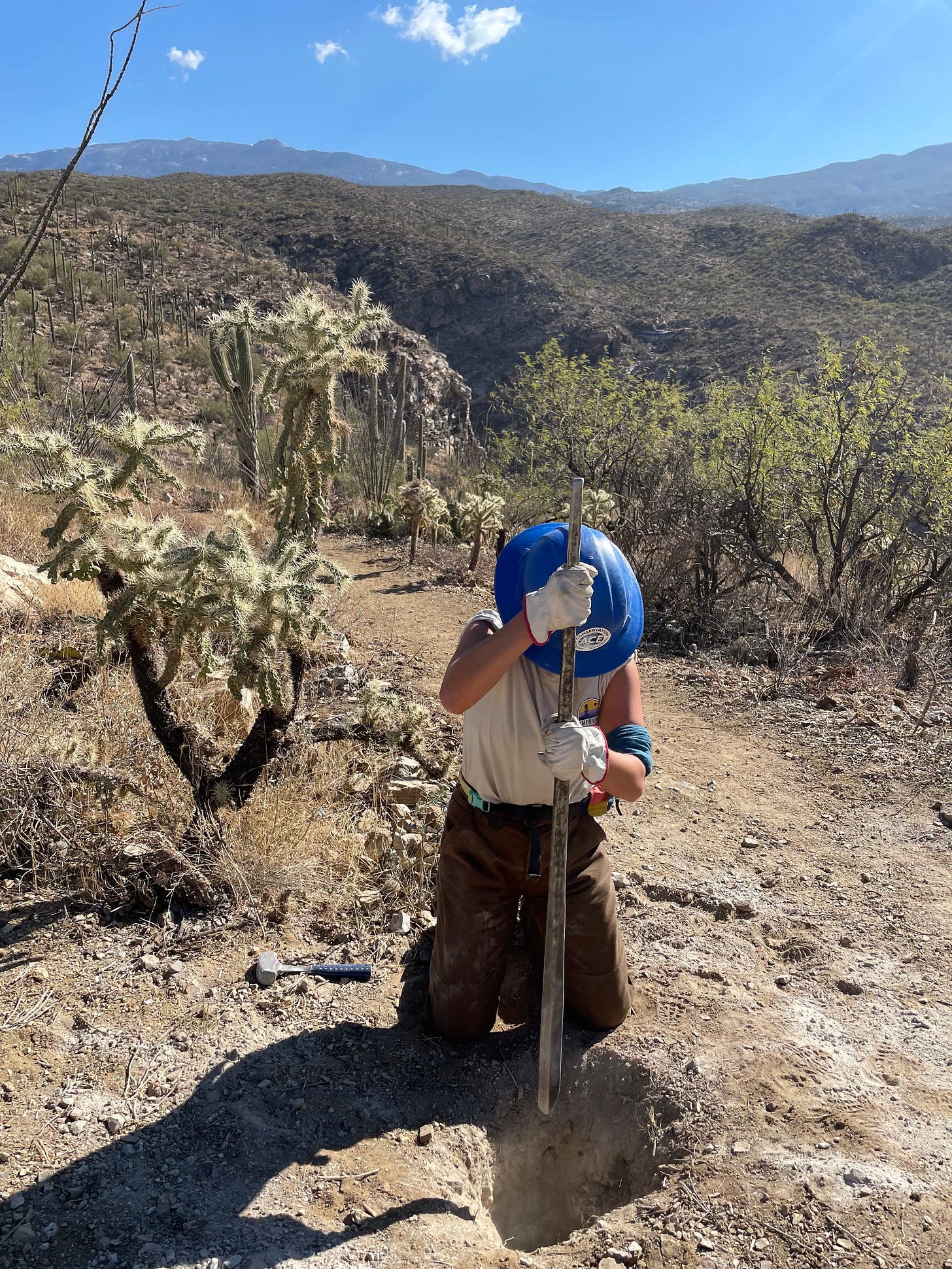who deserves to enjoy the outdoors?
I spend a lot of time outside.
My summer days are spent on a raft, guiding people through whitewater, pointing out wildlife, lecturing on the geological features of the canyon where I work. If I’m lucky, I’ll get to sleep out under the stars.
In the winter, I do trail maintenance and conservation work. I’ll spend all day hiking, setting rock steps, or planting trees. I camp more than I sleep in a bed.
I love it. It’s wonderful. I get to work in places that are on people’s bucket lists and spend days at a time in the backcountry, seeing no one other than my crew.
And it’s hard. For my most recent project, I camped in 10 degree weather and hiked 10 miles a day. I’ve had some scary lines through dangerous rapids and I’ve swallowed a lot of river water.
The prevailing sentiment in the outdoor industry: it’s not just that the great experiences make the difficult parts worth it, it’s that the great experiences are earned because the hard parts are so damn hard. And if you don’t suffer at least a little, you don’t deserve the rewards.
When we come back from a week-long backcountry project where the crew braved wind, snow, and 60 miles of hiking, we like to grab a drink and brag about it in vivid detail.
On river trips we read aloud from Edward Abbey: “…I promise you this one sweet victory over your enemies, over those desk-bound men and women with their hearts in a safe deposit box, and their eyes hypnotized by desk calculators. I promise you this; You will outlive the bastards.”
It’s easy to fall into this mindset, to develop a bit of a superiority complex about the outdoors. It feels good to be a part of the clique, the in-group of people that deserve special access to nature’s most beautiful offerings.
But do we? Do our freezing nights and endless miles and long days on the river mean that we have more of a right to enjoy nature than anyone else?
I do think you get back what you put in when it comes to nature experiences. Many of the most beautiful, life-changing places, the ones that have profoundly affected me, are only accessible by long journeys on foot or by boat.
By spending so much time outside, I’ve also been able to learn more about the environment – the names and uses of plants, the ancient geological histories, the ebbs and flows of the ecosystems where I work.
I feel more connected to nature. I think that I am more connected to nature than many people in our society.
But that doesn’t mean that people who spend 95% of their time indoors can’t feel that connection too. It doesn’t mean they can’t venture out into the natural world and have experiences just as life-altering and profound as we do on our river trips and backcountry hikes.
And for all of the posturing, all of the Ed Abbey readings and the Strava posts of our insane hikes, we in the outdoor industry tend to forget (or avoid) the fact that our work is mostly in service of the people who don’t really get outside. At least not the way we pretend you have to in order to truly connect with nature.
Most of the guests I took on the daily river trip last summer had never been rafting before, or hadn’t been since they were kids. Many of them were kids. Maybe it was their one big outdoor trip of the entire year.
I just finished a project where we spent 8 days doing maintenance on dirt bike trails. We were hardly remote – the nearest Walmart was 10 minutes down the road – and I don’t know if people are “communing with nature” when they’re ripping down a dirt track at 30 miles per hour.
But they’re still getting outside. They’re still having fun, they’re still seeing the world from a different perspective than they would through their phone screens. They’re still getting dirty, getting the adrenaline rush, challenging themselves to do the difficult thing.
Maybe we, the outdoor industry professionals, the self-proclaimed “dirtbags,” spend longer, more grueling days outside. But our jobs would not exist without the more casual outdoor enthusiasts who want the river trip of a lifetime or a well-maintained trail to their favorite overlook.
At the core, are our experiences really so different?
Something else that comes with the territory of being an outdoor professional, something insidious that we try not to admit, is that we are not necessarily the people who treat the Earth the most gently or kindly.
We might preach Leave No Trace, but there’s a certain entitlement that comes with spending so much time with nature, with getting to know her so well.
What’s a few minutes off-trail, stomping through the fragile desert soil when you’re the one who built the trail in the first place? What’s one broken oar or missing paddle leaching plastic into a vast river canyon?
“It’s fine, I earned it.” A dangerous sentiment when thousands of other outdoor professionals are thinking the same thing.
There is also irony in the fact that the vast majority of people who work and participate in outdoor recreation in the U.S. are white. Many white people, myself included, grew up with the expectation and privilege that we could freely enjoy outdoor spaces.
My parents took me camping before I could even walk. My first river trip was at age 6. I am so happy and grateful I got those experiences, but they are not universal.
My ancestors were never banned from parks, they never had to fight for the legal right to partake in outdoor recreation. My family has never received dirty looks or snarky comments just for existing in outdoor spaces.
And on the other side of the coin, many white people in this country (again, myself included) are descended from those who took land, culture, and opportunities away from Indigenous people — people who have historically had much closer and more respectful relationships with the land.
With that context in mind, does one brutal winter of trail work or long summer of raft guiding entitle me to greater access to nature? Are my experiences outside any more profound?

Humans are part of the ecosystem; we always have been. We all have the ability to live harmoniously with nature and we all deserve to be outside.
It is only recently in our society that we have defined “nature” as something other than ourselves, built an entire industry around it as something you go to or use and not something that you belong to, live with, are.
I do think it is important, crucial even, to give back to nature. Especially now.
We should all be learning the names of native plants, picking up trash from our local green spaces, spending more time walking and less time driving, connecting with the outdoors however we can.
And maybe connecting with the outdoors means challenging ourselves physically and mentally, pushing ourselves those last few miles on the trail or down the river. Maybe it means hiking into the backcountry to maintain our public lands, spending freezing nights in a tent, braving the whitewater, and doing some good old-fashioned suffering.
But I chafe at the idea that you have to earn your experiences in nature by being at least a little miserable while you’re doing it.
It requires respect and reciprocity to be a good steward of the environment, but it doesn’t require a dirtbag/river rat/ski bum/trail crew lifestyle, as much as we like to pretend that it does.
The outdoors are inherently for everyone. For the once-a-year whitewater rafters, and the occasional walkers of local trails, and yes, even the dirt-bikers (on well-maintained, designated trails, obviously!).
It has to be for everyone. Because how can we really love nature if we don’t give everyone else the chance to love it too?






